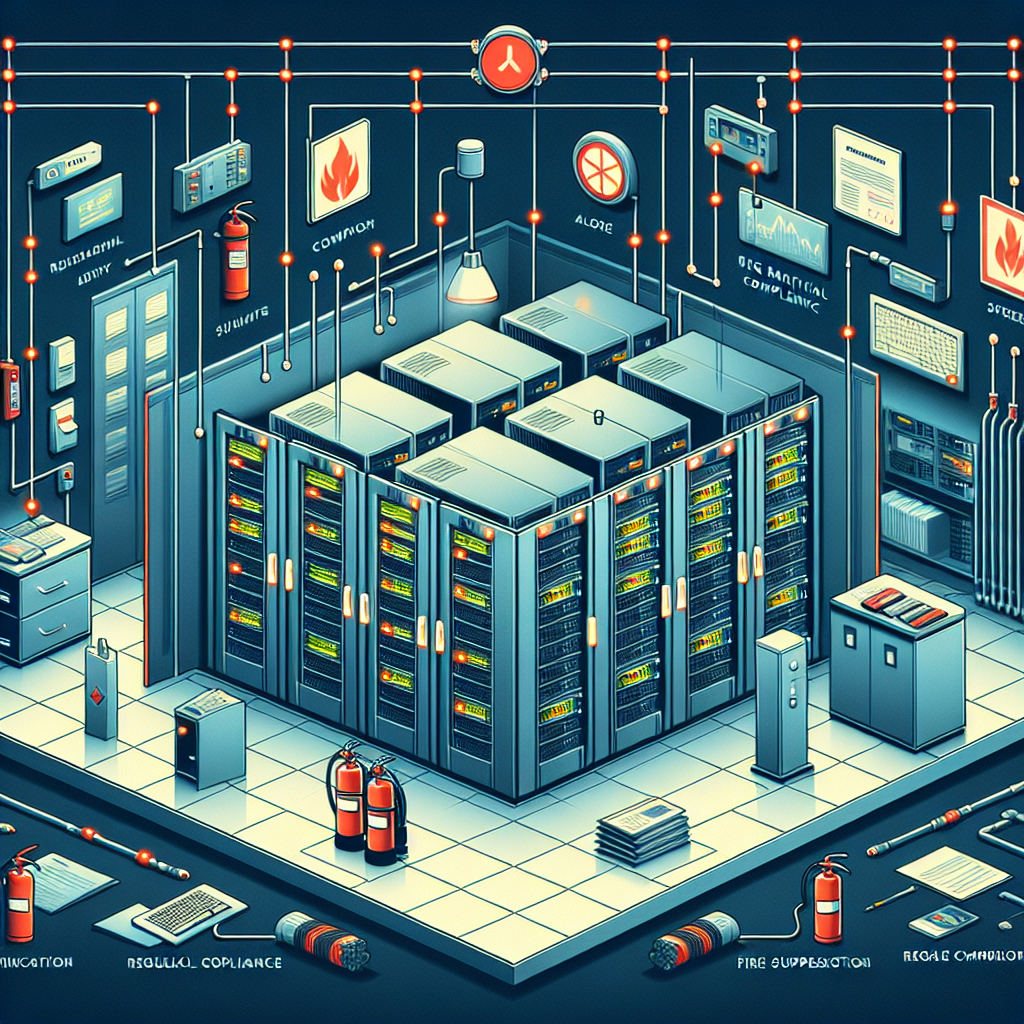Your cart is currently empty!
Regulatory Compliance and Data Center Fire Suppression: What You Need to Know

Regulatory compliance and data center fire suppression are two critical aspects of ensuring the safety and security of a data center. With the increasing reliance on technology and data storage, it is essential for data center operators to understand the regulations and standards that govern fire suppression systems in these facilities.
Regulatory compliance refers to the adherence to laws, regulations, and industry standards that are designed to protect the health, safety, and welfare of individuals and the environment. In the context of data centers, regulatory compliance includes ensuring that fire suppression systems meet the requirements set forth by organizations such as the National Fire Protection Association (NFPA) and the International Building Code (IBC).
Data center fire suppression systems are designed to quickly and effectively extinguish fires in the event of an emergency. These systems typically use a combination of water, gas, or chemical agents to suppress fires and prevent them from spreading throughout the facility. The type of fire suppression system used in a data center will depend on factors such as the size of the facility, the type of equipment being used, and the potential fire hazards present.
It is important for data center operators to understand the regulatory requirements for fire suppression systems in their facilities. Failure to comply with these regulations can result in fines, penalties, and even legal action. In addition to regulatory compliance, data center operators should also consider the best practices for fire suppression in order to protect their equipment and data.
One key aspect of data center fire suppression is the use of clean agent systems. Clean agent systems use inert gases or chemical agents to suppress fires without leaving behind any residue or damaging equipment. These systems are ideal for data centers because they are safe for use around sensitive electronic equipment and can effectively suppress fires without causing further damage.
Another important consideration for data center fire suppression is the maintenance and testing of fire suppression systems. Regular maintenance and testing of these systems are essential to ensure that they are functioning properly and will be effective in the event of a fire. Data center operators should work with qualified technicians to schedule regular inspections and testing of their fire suppression systems to ensure compliance with regulations and industry standards.
In conclusion, regulatory compliance and data center fire suppression are critical aspects of maintaining a safe and secure data center facility. Data center operators must understand the regulations and standards that govern fire suppression systems and take proactive steps to ensure that their systems are compliant and effective in the event of an emergency. By following best practices and working with qualified technicians, data center operators can protect their equipment, data, and employees from the devastating effects of a fire.

Leave a Reply